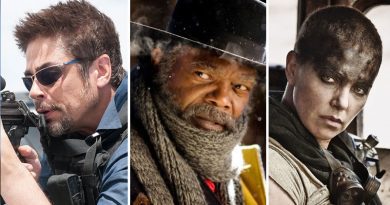Thief at 40: Michael Mann’s Stylish Debut Feature
Before Michael Mann gave us the unforgettable Al Pacino and Robert De Niro pairing in the 1995 crime epic, Heat, it was worth noting that he got his impressive start in Thief fourteen years ago (unless you want to count his 1979 made-for-TV first feature, The Jericho Mile).
Turning 40 today, then-37 years old Michael Mann has already proven to be an ace in combining distinctive visual style and methodical storytelling. The former is particularly evident in the way he and cinematographer Donald Thorin shoots the rain-slicked streets of Chicago during the night. This was way before he became fixated on experimenting with high-definition video decades later in the likes of Collateral (2004), Miami Vice (2006) and Public Enemies (2009).
Back to Thief, the nighttime scenes evoke both cool and alluring neo-noir visual aesthetics, coupled with Tangerine Dream’s mesmerising synth score that helps distinguish the crime thriller from other like-minded films at the time. Mann clearly is in control of how he frames his picture, even for a scene as simple as James Caan’s titular character Frank making a call on a payphone.
Beyond its visual beauty surrounded the movie, Mann never forgets about the necessary grit and violence commonly associated with the crime genre, where the latter sees the director draws inspiration from Sam Peckinpah in executing some of the slow-motion shootout scenes. Thematic visual motifs are also prominent in Mann’s feature-length debut, notably the ocean backdrop where a protagonist would either look or stare at the wide-open sea, signifying loneliness, solitude and even uncertainty that reflects their character. Such a scene is featured during the earlier moment where Frank takes a walk down the jetty at dawn while holding a bag of rolls. From there, he joins the fisherman where they have a small talk before looking out over Lake Michigan.
Thief is also notable in how Michael Mann chose to portray them, particularly the protagonist. Played by James Cann in one of his finest performances to date, Frank may have been a career criminal specialising in safe-cracking. He’s good at what he does and lives by a strict moral code. But he remains a flawed individual when comes to his own personal life. Like any other normal person would do, he wants to start a family and a home. This, in turn, leads to an elaborate scene in the diner where Frank confesses his feeling to Jessie (Tuesday Weld, giving decent support here) — the emotional moment that showcases Frank’s both human and vulnerable sides of his otherwise apathetic and embittered safecracker.
Equally worth mentioning is Robert Prosky’s strong supporting turn as the sneaky and manipulative crime boss, Leo. Jim Belushi — credited as James Belushi — made his official feature-length acting debut as Frank’s partner in crime, Barry. Also, look out for a blink-and-you’ll-miss-it cameo appearance of then-unknown William Petersen playing as a bartender. Petersen, of course, would subsequently lead as FBI profiler Will Graham in Michael Mann’s Manhunter five years later.
The story — adapted by Mann himself from Frank Hohimer’s 1975 novel The Home Invaders: Confessions of a Cat Burglar — is actually a straightforward one. The kind where the protagonist (Caan’s Frank) looking for one last big score before settling down for good. Of course, things do not go right as expected when the crime boss (Prosky’s Leo) that he works with double-crosses him at the end of the day.
The movie’s deliberate pace might be a turn-off for some people but as mentioned earlier, Mann’s methodical approach focusing on the professional and personal life of a safecracker is what elevates Thief as an above-average effort. Mann insists on attention-to-detail realism when comes to the safecracking moments seen in the two heist sequences, even went as far as utilising actual tools as according to IMDB’s trivia section, “supplied by real-life thieves who served as technical consultants on the film”.
First released back on March 27, 1981, Thief was well-received by critics but didn’t perform well in the box office. In fact, you could say Michael Mann’s earlier directorial efforts — particularly his first three films with the other two including The Keep (1983) and Manhunter (1986) — didn’t exactly translate well with the general audiences at the time. It only took Mann until his 1992 fourth feature, where he finally scored a major box-office hit in The Last of the Mohicans starring Daniel Day-Lewis and Madeleine Stowe.




